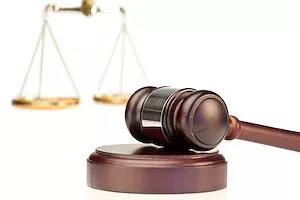No Criminal Liability for Online Intermediaries: Taringa Owners Acquitted for 2nd Time
Argentine Oral Criminal Tribunal No. 26 acquitted the owners of content aggregator Taringa, tried as accessories to criminal IP violations.

In re “Nakayama et. al.” (case file N° 3836/3842/3957), a number of IP rights holders brought criminal actions against the owners of www.taringa.net, a popular Argentine content aggregator. Complainants alleged that the defendants willfully cooperated with a criminal copyright violation, by allowing anonymous Taringa users to post links that redirected traffic to infringing content.
The Court of First Instance indicted the defendants on counts of criminal intellectual property fraud. Following an interlocutory appeal, Criminal Court of Appeals affirmed the indictment. In so deciding, the Court of Appeals judged that the defendants knowingly facilitated the unauthorized reproduction of protected material (further information available at https://www.marval.com/publicacion/responsabilidad-penal-de-los-administradores-de-sitios-web-5789&lang=en).
The case progressed to oral trial, which entailed a full debate on the defendant’s duties and liability as online content intermediaries.
After analyzing all of the evidence produced during the trial hearings, the acting Tribunal acquitted the defendants on all charges.
Essentially, the Tribunal deemed that it was impossible for the website owners to proactively monitor all third party generated content, and that imposing such an obligation is forbidden by free speech principles and legislation.
In addition, the Tribunal judged that the case did not warrant the imposition of criminal liability on the basis of accessory statutes. In this sense, the Tribunal held that the prosecution failed to show that the defendants actively conspired with the individuals posting the relevant links on the “Taringa” network.
This is the first case where a criminal action of this type results in a final decision on the merits. It is undoubtedly a major milestone in the clarification of applicable standards to ascribe intermediary liability for online crimes.
This is the second time in which a criminal court has ruled on the liability of the owners of Taringa. In 2015, in “Botbol, Hernán et al”, the Court of Appeals in Criminal Matters held that the owners of the platform were not liable for copyright infringement, because appropriate measures had been taken after receiving notice of a possible infringement (further information available at https://marval.com/publicacion/proveedor-de-servicios-de-internet-que-provee-links-a-contenido-que-viola-derechos-de-autor-es-sobreseido-con-fundamento-en-factor-de-atribucion-subjetivo-12660&lang=es)
This insight is a brief comment on legal news in Argentina; it does not purport to be an exhaustive analysis or to provide legal advice.